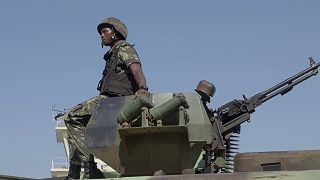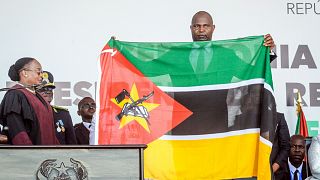Mozambique
EU foreign policy chief Josep Borrell on Thursday said he hoped to send a military training miss ion to Mozambique "as soon as possible" to help authorities facing a jihadist insurgency.
Mozambique has seen a surge in jihadist violence that has displaced tens of thousands in the north of the country.
Jihadists waging a three-year-old insurgency swooped on the coastal town of Palma on March 24, killing dozens of people and triggering an exodus that included workers on a multi-billion-dollar liquefied natural gas project.
"We are considering a potential European Union training mission," Borrell said after a meeting of EU defence ministers.
"We have a few steps ahead of us but I hope it will be launched as soon as possible."
He said that Mozambique's former colonial ruler Portugal had committed to providing half of the troops and "already sent in advance military instructors" who could be incorporated into an eventual EU mission.
"The political will is there and with a strong contribution from Portugal I hope that the other member states will be able to complement the whole force," Borrell said.
The push for a military mission to assist Mozambique came as defence ministers launched a debate on bolstering the bloc's capabilities to respond quickly to crises, including a preliminary proposal to create a 5,000-strong rapid reaction force.
Borrell argued that the initiative could bolster the EU's global clout, but said that it had been met with reluctance by some member states.
"I think that it's good to have the capacity to intervene immediately if you really want to be a geopolitical power," Borrell said.
"We should be able to act as quick as needed."
Borrell said the plan was not "cast in stone" and was a proposal being put forward as the bloc conducts a review of its overall security strategy that is expected to be completed next year.
"Some member states were a little bit reluctant," he said.
German Defence Minister Annegret Kramp-Karrenbauer appeared to pour cold water on the concept as she said it was just "one of the thousands of ideas that are currently being discussed"
"It has not yet really been discussed in depth," she said.
The effort is not the first by the bloc to create a rapid reaction force.
The EU set up a system of "battle groups" in 2007, but none of the 1,500-strong forces were ever deployed amid political and funding wrangling within the bloc.
Debate has raged for decades over what role Brussels should play on defence, and EU member nations -- most of which are also NATO allies -- have often been reluctant to agree moves to integrate military capabilities.













Go to video
EU ministers warn of countermeasures to US tariffs if trade negotiations fail
01:56
EU foreign ministers discuss deal with Israel to increase Gaza aid
01:42
Gaza conflict overshadows EU-Southern Neighbourhood talks in Brussels
Go to video
Greece cracks down on irregular migration, says it’s "not an open corridor to Europe"
00:42
EU says diplomatic incident with Libya "a protocol issue"
Go to video
More migrants arrive as Greece suspends asylum applications